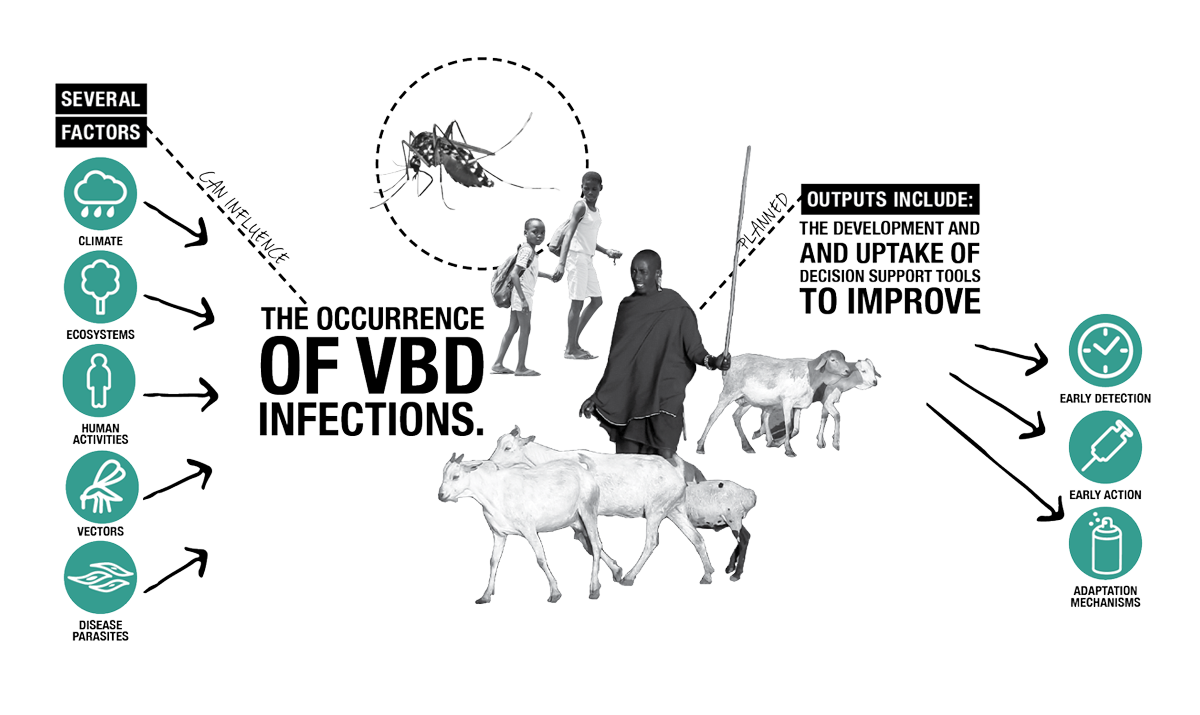
Climate change is a global concern and its impacts are known to affect the incidence and prevalence of vector-borne diseases (VBDs) such as malaria and Rift Valley fever (RVF). Changes in climate may directly affect disease transmission by shifting the vector’s geographic range and changing the reproductive and biting rates. A change in climate is likely to result in an increase in temperatures and changes in precipitation patterns. This, in turn, may lead to an increase in the prevalence of climate sensitive VBDs. The effect of this change on VBDs is considered greatest in the dryland areas.
This project seeks to assess the vulnerability of dryland human populations to VBDs and develop strategies and systems to improve their resilience to climate-sensitive vector-borne diseases in Baringo County, Kenya. The outputs of this study will include determining the potential effect of climate change on VBDs, understanding the role played by temperature, precipitation, humidity and landscape cover on the spread of VBDs, developing disease prediction models as tools for reduction of vulnerability, determining the spatial distribution of VBDs under different climate change scenarios, developing early warning techniques for improving the management and control of climate sensitive VBDs in Kenya and improving the management and control of climate sensitive VBDs and community resilience.
Why this project?
There are several factors that influence the occurrence of VBD infections. Most important of these are: climate, ecosystems, human behaviours, vectors and disease parasites.
This project aims to better understand these factors and help vulnerable populations. The researchers want to develop decision-support tools to improve early detection, early action and adaptation mechanisms, to increase population resilience to vector-borne diseases.